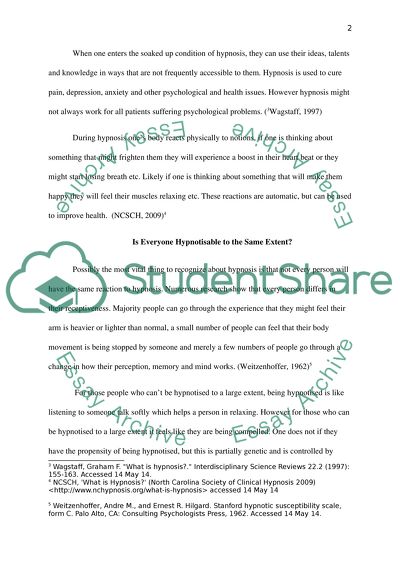Cite this document
(“Why are some people more hypnotisable than others Essay - 1”, n.d.)
Why are some people more hypnotisable than others Essay - 1. Retrieved from https://studentshare.org/psychology/1646315-why-are-some-people-more-hypnotisable-than-others
Why are some people more hypnotisable than others Essay - 1. Retrieved from https://studentshare.org/psychology/1646315-why-are-some-people-more-hypnotisable-than-others
(Why Are Some People More Hypnotisable Than Others Essay - 1)
Why Are Some People More Hypnotisable Than Others Essay - 1. https://studentshare.org/psychology/1646315-why-are-some-people-more-hypnotisable-than-others.
Why Are Some People More Hypnotisable Than Others Essay - 1. https://studentshare.org/psychology/1646315-why-are-some-people-more-hypnotisable-than-others.
“Why Are Some People More Hypnotisable Than Others Essay - 1”, n.d. https://studentshare.org/psychology/1646315-why-are-some-people-more-hypnotisable-than-others.


